International parental child abduction is a growing global phenomenon that disrupts families and violates custody rights across borders. This complex legal issue arises when one parent unlawfully removes or retains a child in another country, often triggering emotional, legal, and diplomatic challenges. The Hague Convention seeks to resolve such cases by ensuring the swift return of children to their country of habitual residence. In response to this pressing issue, Bıçak Law Firm offers specialized legal services in Turkey, assisting families worldwide with return applications, judicial proceedings, and cross-border enforcement. With a deep understanding of international conventions, Turkish legal procedures, and multilingual client support, our firm stands as a trusted ally in navigating these highly sensitive cases.
Legal Help for International Parental Child Abduction
International parental child abduction has become an increasingly prevalent global phenomenon, arising from the mobility of modern families, cross-border relationships, and unresolved custody disputes. It refers to the act of one parent unlawfully taking or retaining a child in a foreign country, depriving the other parent of lawful custody or visitation rights. These incidents are not only emotionally traumatic for the child and the left-behind parent but also pose significant legal and diplomatic challenges.
Unlike domestic custody conflicts, international abduction cases trigger the involvement of multiple jurisdictions, complex treaty obligations, and urgent judicial procedures. The abducting parent may act out of desperation, disagreement with court orders, or an intent to sever the child’s ties with the other parent. Regardless of motive, the unlawful removal or retention of a child across borders disrupts their stability and can have long-term psychological consequences.
The international community, recognizing the seriousness of such abductions, has adopted mechanisms like the Hague Convention to facilitate the prompt return of children to their country of habitual residence. However, the practical resolution of these cases remains difficult, requiring skilled legal intervention, coordinated international cooperation, and sensitivity to both legal and humanitarian dimensions.
Legal Framework
International parental child abduction is primarily addressed through a combination of international treaties and domestic laws. The most significant legal instrument in this context is the Hague Convention on the Civil Aspects of International Child Abduction (1980), which provides a structured mechanism for the prompt return of children wrongfully removed to or retained in a foreign country.
The Hague Convention (1980)
Adopted on 25 October 1980 and currently ratified by over 100 countries, the Hague Convention aims to deter international child abductions by ensuring that custody disputes are resolved by the courts of the child’s habitual residence. The Convention does not determine custody itself but provides a legal process for the child’s swift return so that custody decisions can be made by competent authorities in the correct jurisdiction.
The core principles of the Convention include:
- Respecting existing custody rights across borders.
- Preventing forum shopping by abducting parents.
- Preserving the child’s connection to their habitual environment.
- Ensuring judicial cooperation between member states.
Turkey’s Role and Legal Obligations
Turkey became a signatory to the Hague Convention in 1998 and has implemented the treaty through domestic legal procedures. The Turkish Central Authority, under the Ministry of Justice, is responsible for receiving applications and coordinating with foreign counterparts. Turkish family courts have jurisdiction to examine the return applications and ensure compliance with the Convention’s requirements.
Under Turkish law, courts reviewing return applications do not assess long-term custody rights; their role is limited to determining whether the child was wrongfully removed or retained, and if any of the exceptions to return apply.
Complementary National and International Laws
In addition to the Hague Convention, parental child abduction may also implicate:
- Criminal law provisions under Turkish Penal Code (wrongful removal can constitute a criminal offense).
- International human rights law, including the UN Convention on the Rights of the Child (CRC), which emphasizes the child’s right to maintain contact with both parents.
- Bilateral agreements or diplomatic channels, in cases where the Hague Convention does not apply or the other country is not a signatory.
This multilayered legal framework requires careful navigation and expert coordination, particularly when working across different legal systems and languages.
Common Scenarios of Abduction
International parental abduction can occur in various contexts, often during times of heightened familial conflict, emotional distress, or legal uncertainty. While each case has its unique circumstances, several patterns frequently emerge in practice:
Abduction During Parental Separation or Divorce
One of the most common scenarios is when a relationship between parents deteriorates, and one parent unilaterally removes the child to another country—often their country of origin or a place they perceive as more favorable to their custody claim. In these cases, the abducting parent may act out of fear of losing custody, dissatisfaction with judicial decisions, or a desire to sever ties with the other parent.
Abduction Following Holiday or Visitation Travel
Another recurring situation involves one parent traveling abroad with the child for vacation or short-term visitation and then refusing to return the child as agreed. These so-called “retention cases” can be more difficult to identify immediately and may result in prolonged unauthorized stays in the foreign jurisdiction.
Preemptive Abduction in Anticipation of Legal Proceedings
Sometimes, a parent anticipates an unfavorable custody judgment and removes the child from the country in advance of a court decision. This preemptive action is intended to frustrate the judicial process and is considered a serious breach of custody rights.
Abduction to Non-Hague Countries
Particularly complex are cases where the child is taken to a country that is not a party to the Hague Convention. In such situations, the left-behind parent may have no access to treaty-based remedies and must instead rely on diplomatic efforts, criminal procedures, or informal negotiations.
Abduction Involving Dual Nationals or Mixed Nationality Families
When parents and children hold different nationalities or dual citizenships, issues of jurisdiction, diplomatic protection, and legal interpretation become even more complicated. Such cases often require careful coordination with embassies, consular officials, and international legal experts.
These scenarios underline the need for swift legal intervention and expert representation. In many instances, the abducting parent may believe their actions are justified, but under international law, wrongful removal or retention can have serious legal consequences. Early legal advice and strategic planning are essential to protect the child’s well-being and to uphold lawful parental rights.
Legal Process for Child Return in Turkey
When a child is wrongfully brought to or retained in Turkey by one parent without the other’s consent, the left-behind parent has the right to initiate a legal process to secure the child’s return under the Hague Convention. This process is designed to be prompt, focused solely on the legality of the removal or retention, and not on determining long-term custody rights.
Filing an Application through the Central Authority
The process typically begins with the submission of a return application to the Central Authority in the applicant’s home country. That authority forwards the request to the Turkish Central Authority, located within the Directorate General for International Law and Foreign Relations under the Ministry of Justice.
The application must include:
- The identity and habitual residence of the child
- Details of the wrongful removal or retention
- Documentation of custody rights (court orders, agreements, or legal presumptions)
- Evidence that the applicant was exercising custody rights at the time of the abduction
Coordination and Notification
Once the application is received, the Turkish Central Authority assesses its formal admissibility and forwards the matter to the competent Turkish Family Court. The abducting parent is formally notified and summoned to respond to the allegations.
Judicial Proceedings
Turkish courts are obligated under the Hague Convention to act expeditiously. The judicial inquiry is narrow in scope: the court examines whether the child was habitually resident in another country, whether the removal or retention was wrongful under that country’s law, and whether the left-behind parent was exercising custody rights.
The court does not assess the merits of custody but decides on the return of the child to their habitual residence so that custody matters can be resolved there. Proceedings are typically held in the Family Courts in the province where the child is located.
Timeframes and Urgency
The Convention urges authorities to conclude proceedings within six weeks, though actual durations may vary depending on court workload, available evidence, and any appeals. If the process takes longer, courts may be asked to justify the delay.
Appeals and Enforcement
A return order issued by a Turkish court may be appealed by either party. If the return is confirmed, enforcement mechanisms are available through enforcement offices in cooperation with law enforcement and child welfare authorities. In complex or high-conflict cases, psychological experts may be involved to ensure the child’s safety and well-being during the return.
The return process under the Hague Convention, while legally defined, requires comprehensive preparation, detailed documentation, and strategic litigation to succeed. The left-behind parent is advised to act quickly, as procedural delays or lack of evidence may weaken the case. Bıçak Law Firm offers legal representation throughout this process, ensuring compliance with both international obligations and Turkish procedural law.
Exceptions and Defenses under the Hague Convention
While the Hague Convention aims to ensure the swift return of wrongfully removed or retained children, it also recognizes that immediate return may not always serve the child’s best interests. For this reason, the Convention provides a limited set of exceptions under which a court may refuse to return the child. These defenses are construed narrowly and must be proven by the abducting parent with clear and convincing evidence.
Grave Risk of Physical or Psychological Harm (Article 13(b))
A return may be denied if there is a grave risk that it would expose the child to physical or psychological harm or otherwise place them in an intolerable situation. This defense is often invoked in cases involving domestic violence, abuse, or extreme neglect. However, Turkish courts – as with courts in many other jurisdictions – require strong, credible evidence, and not mere allegations, to accept this exception.
Child’s Objection
If the child has attained an age and degree of maturity at which their views should be taken into account, and they object to being returned, the court may refuse return. Turkish courts may hear the child directly or through a psychologist or guardian ad litem to assess their genuine preferences and emotional maturity. However, the objection must reflect the child’s own views, not those influenced or manipulated by a parent.
Consent or Acquiescence by the Left-Behind Parent
If the abducting parent can show that the other parent consented to or later acquiesced in the child’s removal or retention, the return may be refused. Consent may be explicit or implied through actions (e.g., allowing the child to remain abroad for an extended time without protest). Courts will carefully assess the totality of circumstances to determine whether consent or acquiescence genuinely occurred.
More than One Year Has Passed and the Child is Settled
If the application is filed more than one year after the abduction and the child is now settled in their new environment, the court may decline to order return. “Settlement” is a fact-sensitive determination involving factors such as school attendance, social connections, emotional adjustment, and community integration. However, if the abducting parent concealed the child’s location or otherwise hindered the left-behind parent from filing earlier, the one-year period may be disregarded.
Fundamental Principles of Human Rights (Article 20)
A Turkish court may refuse return if it finds that returning the child would violate fundamental principles of Turkey’s protection of human rights and fundamental freedoms. This defense is very rarely applied and typically arises only in exceptional cases where return would be clearly incompatible with Turkish public policy or constitutional guarantees.
These exceptions are not intended to provide a second custody trial but to ensure that return does not result in harm or injustice. The burden of proof lies with the abducting parent, and courts are guided by the presumption in favor of return unless a recognized defense is established. At Bıçak Law Firm, we provide experienced advocacy for both left-behind and respondent parents, ensuring that each case is fully and fairly presented before the Turkish courts.
Role of Us
Navigating an international parental abduction case requires not only a thorough understanding of domestic and international legal frameworks but also strategic planning, cross-border coordination, and sensitivity to the emotional and cultural dimensions of the dispute. Bıçak Law Firm brings together these competencies to offer comprehensive legal support in international child abduction matters.
Strategic Legal Representation
Our experienced attorneys provide tailored legal strategies based on the specifics of each case – whether representing the left-behind parent seeking the return of a child or defending a parent facing a return application. We analyze the legal grounds, evidentiary requirements, and potential defenses under the Hague Convention to develop an effective course of action.
Representation Before Turkish Courts
We represent clients before Family Courts across Turkey, preparing court petitions, gathering supporting documentation, and conducting oral advocacy during hearings. Our lawyers are familiar with the procedural intricacies of the Turkish legal system and ensure all filings comply with both domestic and treaty-based requirements.
Coordination with Foreign Counsel and Authorities
International child abduction cases often involve simultaneous legal processes in multiple jurisdictions. We coordinate closely with foreign attorneys, central authorities, and embassies to ensure coherent and synchronized representation. In appropriate cases, we facilitate diplomatic or consular support for the child or parents involved.
Multilingual and Cross-Cultural Assistance
Given the global nature of these cases, our firm offers legal services in English, Turkish, and other languages upon request. We recognize the importance of clear communication, especially when guiding foreign clients unfamiliar with Turkish law. Our culturally competent approach ensures that all parties are treated respectfully and with understanding.
Emergency Legal Intervention
In urgent situations – such as when a child is at risk of being further relocated – we act swiftly to obtain preventive measures, including travel bans, interim custody orders, or protective injunctions. Our legal team is prepared to act on short notice to prevent irreparable harm and safeguard the child’s best interests.
Post-Return Support and Enforcement
When a return order is granted, we support its enforcement in collaboration with Turkish enforcement offices and child welfare professionals. We also assist in securing necessary transitional measures, such as supervision during transfer, psychological support, and coordination with receiving authorities in the child’s habitual residence.
At Bıçak Law Firm, we are committed to protecting the rights of children and families in cross-border disputes. Our legal team combines technical expertise, practical experience, and human empathy to achieve just and timely outcomes in some of the most sensitive cases handled by the courts. We are proud to stand beside our clients at every stage – from initial consultation to final resolution.
Practical Advice for Parents
International parental child abduction cases can escalate quickly and unpredictably. Whether you are concerned about a potential abduction or responding to an existing one, swift and informed action is critical. The following practical guidance is designed to help parents navigate these difficult situations more effectively.
Act Quickly and Preserve Evidence
Time is of the essence. Delays in taking legal action may reduce your chances of securing the child’s return – especially if the child becomes settled in a new country. Immediately gather and preserve key documents such as:
- Court orders establishing custody or visitation rights
- Travel records, emails, or text messages related to consent
- Proof of the child’s habitual residence (school registration, medical records, etc.)
Promptly contacting a lawyer and initiating the Hague return application can prevent further complications.
Avoid Informal Solutions without Legal Advice
While some parents attempt to resolve abduction matters through private negotiations or family intermediaries, this can lead to misunderstandings or even unintentionally waive legal rights. It is essential to consult with a lawyer before taking any action, particularly in cross-border contexts where legal systems and cultural expectations differ.
Be Cautious About International Travel During Custody Disputes
If a custody matter is pending or recently resolved, avoid allowing international travel with the child unless there are robust legal protections in place—such as:
- Mirror court orders enforceable in both countries
- Bonds or guarantees required before travel
- Submission of travel itineraries and return confirmations
In cases of concern, consider requesting passport surrender, travel restrictions, or temporary injunctions through the court.
Report Abduction or Risk Immediately
In suspected or imminent abduction cases, notify:
- Local police authorities
- Turkish or foreign central authorities under the Hague Convention
- Border or passport control authorities (to flag travel attempts)
- Your attorney, to file emergency legal applications
Swift reporting may help to prevent departure or enable quicker legal proceedings after removal.
Understand Your Rights and Obligations
Each parent has both rights and responsibilities under national and international law. Wrongfully removing a child – even with good intentions – can have serious legal consequences, including:
- Civil return orders
- Criminal charges in some jurisdictions
- Loss of credibility in future custody proceedings
Legal advice is essential before making decisions involving international relocation of children.
Seek Emotional and Psychological Support
International abduction cases are not only legal battles – they are deeply emotional family crises. Left-behind parents and children may experience trauma, anxiety, and prolonged uncertainty. Seeking support from qualified mental health professionals can be critical for emotional resilience and long-term well-being.
Bıçak Law Firm works not only to resolve these complex cases, but also to empower parents with preventive strategies, knowledge of their legal rights, and access to necessary support systems. Our goal is to help protect families from harm and foster durable solutions in the child’s best interest.
Conclusion
International parental child abduction is a serious and growing challenge in today’s increasingly globalized world. It disrupts the lives of children, violates parental rights, and often leads to prolonged legal struggles that span countries and legal systems. While international instruments such as the Hague Convention provide a framework for resolution, successful outcomes require informed, timely, and coordinated legal action.
In Turkey, the legal process for securing the return of abducted children is governed by both international obligations and national laws. Navigating this process requires a deep understanding of treaty provisions, domestic court procedures, and the evidentiary demands placed on each party.
At Bıçak Law Firm, we recognize the urgency and sensitivity of these cases. Our team is dedicated to providing strategic, compassionate, and effective legal representation to families affected by international child abduction. Whether you are a left-behind parent seeking the return of your child or a parent defending a return application, we are here to guide you through each step of the process with professionalism and care.
When your child’s safety, stability, and future are at stake, trusted legal support makes all the difference. We invite you to contact us for immediate assistance or to learn more about how we can help protect your rights and reunite your family.
Frequently Asked Questions (FAQ)
What qualifies as international parental child abduction?
International parental child abduction occurs when a parent wrongfully removes or retains a child under the age of 16 in a foreign country, in violation of the other parent’s custody or access rights. The act must be without consent or legal authority and is considered wrongful under the Hague Convention.
Is Turkey a party to the Hague Convention?
Yes. Turkey became a signatory to the Hague Convention on the Civil Aspects of International Child Abduction in 1998. Turkish courts and the Ministry of Justice as the Central Authority are obligated to comply with the Convention and facilitate the return of abducted children.
What if the child was taken to a country that is not a Hague signatory?
If the country is not a party to the Hague Convention, return mechanisms become more difficult. In such cases, options may include pursuing criminal charges, diplomatic intervention, or initiating custody proceedings under local laws in the foreign country. Bıçak Law Firm can advise on alternative strategies in non-Hague scenarios.
Can international parental abduction be considered a crime in Turkey?
Yes. Under Turkish law, wrongful removal or retention of a child may also constitute a criminal offense, particularly if it involves defiance of a court custody order. Criminal proceedings can run parallel to civil return proceedings but must be carefully coordinated.
How long does it take to resolve a Hague return case in Turkey?
The Hague Convention encourages resolution within six weeks. However, actual durations may vary depending on the complexity of the case, court workload, and whether appeals are filed. With experienced legal representation, procedural delays can be minimized.
Can custody be changed during a Hague return case?
No. Hague return proceedings do not determine custody. Their sole purpose is to decide whether the child should be returned to their habitual residence so that custody matters can be addressed by the proper court in that country.
What happens if the child refuses to return?
If the child is of sufficient age and maturity, and objects to the return, the court may consider this as a valid defense under Article 13 of the Hague Convention. Turkish courts may hear the child’s views directly or through professionals, but the objection must be genuine and well-reasoned.
How can Bıçak help in my case?
We offer legal consultation, represent clients in Turkish courts, coordinate with foreign legal teams, prepare applications under the Hague Convention, and take emergency measures to prevent further harm. Our multilingual and international experience ensures effective cross-border legal solutions.
 English
English Türkçe
Türkçe Français
Français Deutsch
Deutsch


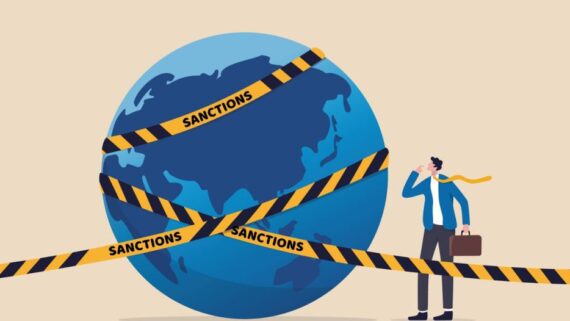
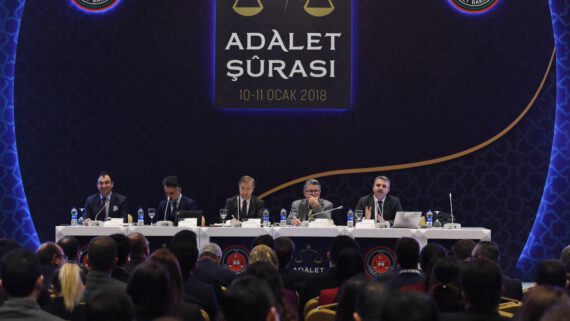
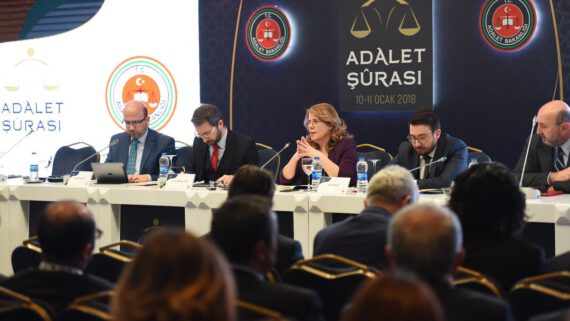
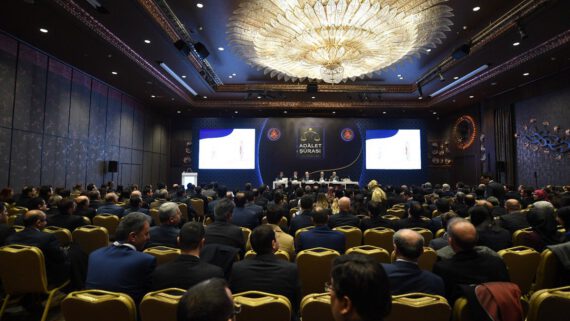
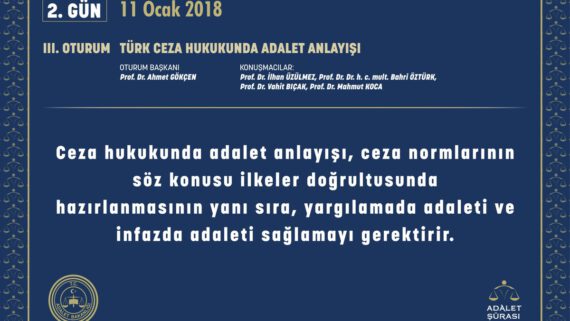



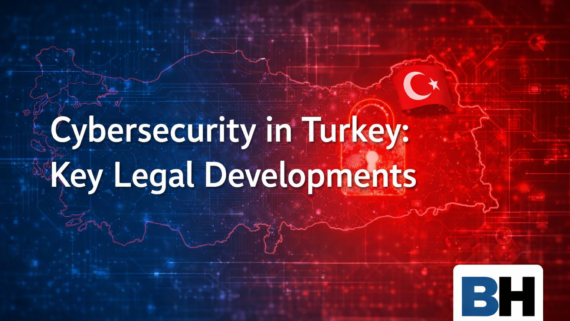
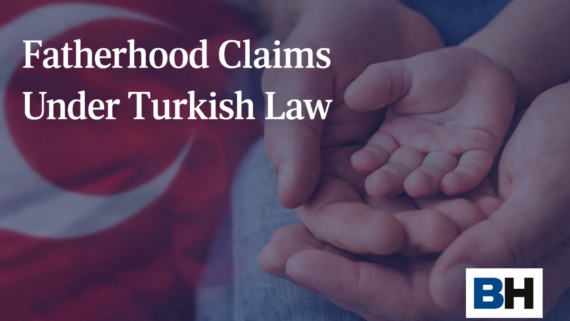
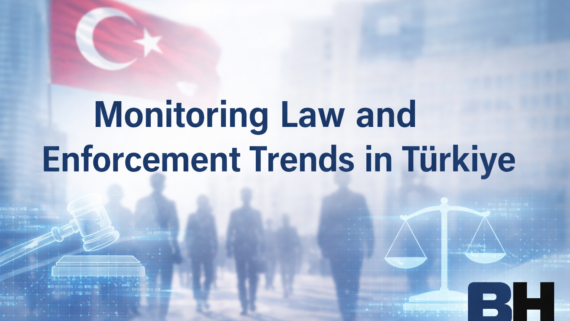
Comments
No comments yet.